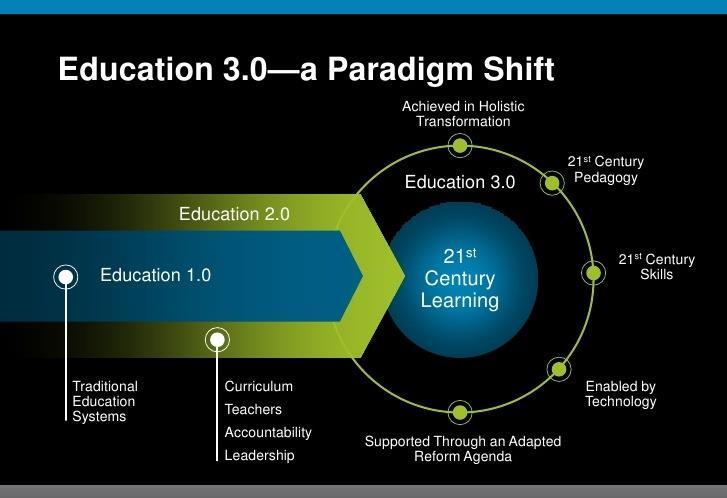
Education 3.0: Technology - Driven Approach

Education 1.0, Education 2.0, and Education 3.0 are terms used to describe different phases of education evolution. Each phase is characterized by a different approach to education and the integration of technology.
Education 1.0 refers to the traditional classroom-based education system, where the teacher is the primary source of information and the focus is on imparting knowledge through lectures, textbooks, and assessments. The emphasis is on memorization and the transmission of information.
Education 2.0 is an extension of the traditional education system, characterized by the use of technology to deliver and access educational content. It is focused on using technology to supplement traditional teaching methods, such as online courses, e-books, and digital textbooks. This approach aims to make education more accessible and efficient, but it maintains the traditional classroom-based model.
Education 3.0, on the other hand refers to the third phase of education evolution, characterized by the integration of technology in all aspects of the education system. It is a holistic approach to education that focuses on personalization, collaboration, and the use of technology to create new learning opportunities.
Education 3.0 is centered on the idea of student-centric learning, where students are actively involved in the learning process and are encouraged to take ownership of their own learning. It emphasizes the use of technology and digital tools to create personalized learning experiences, adapt to the different learning styles and needs of each student, and provide real-time feedback.
In Education 3.0, teachers act as facilitators and guides, rather than as traditional lecturers. They help students to find and use resources, to collaborate with peers, and to develop critical thinking and problem-solving skills.
One of the key features of Education 3.0 is the integration of virtual and augmented reality, artificial intelligence, and other digital tools to create immersive and interactive learning experiences. This type of technology can be used to create virtual classrooms and simulations, to provide access to virtual field trips, and to facilitate collaboration and communication between students and teachers.
Education 3.0 also focuses on the development of 21st-century skills such as creativity, critical thinking, and collaboration, which are essential for success in the digital age. It’s expected to be more flexible, accessible, and inclusive, making education accessible to more people, and allowing the students to learn at their own pace.
Overall, Education 3.0 is a holistic and technology-driven approach to education that aims to personalize learning, improve student engagement, and prepare students for success in the digital age.